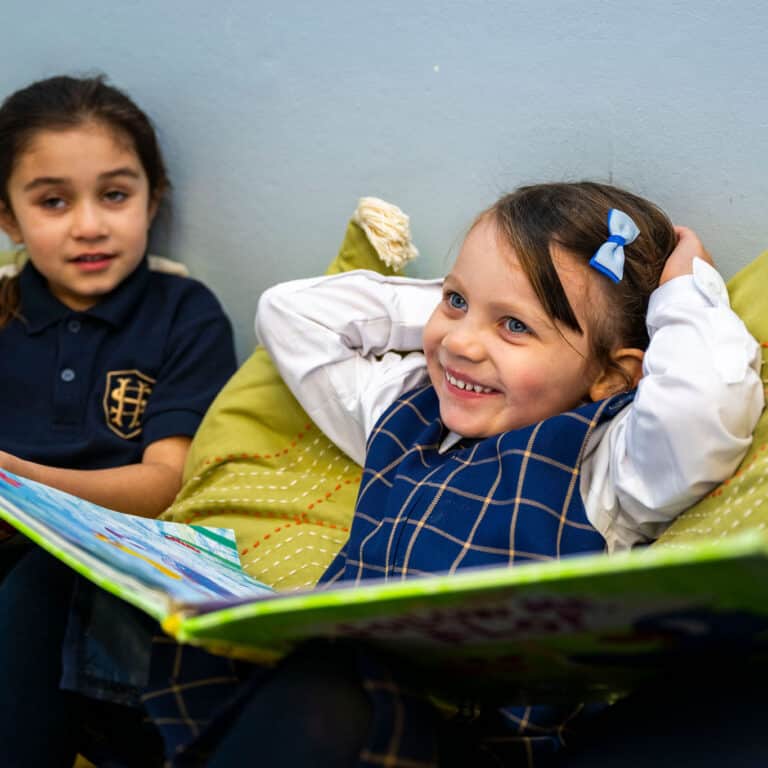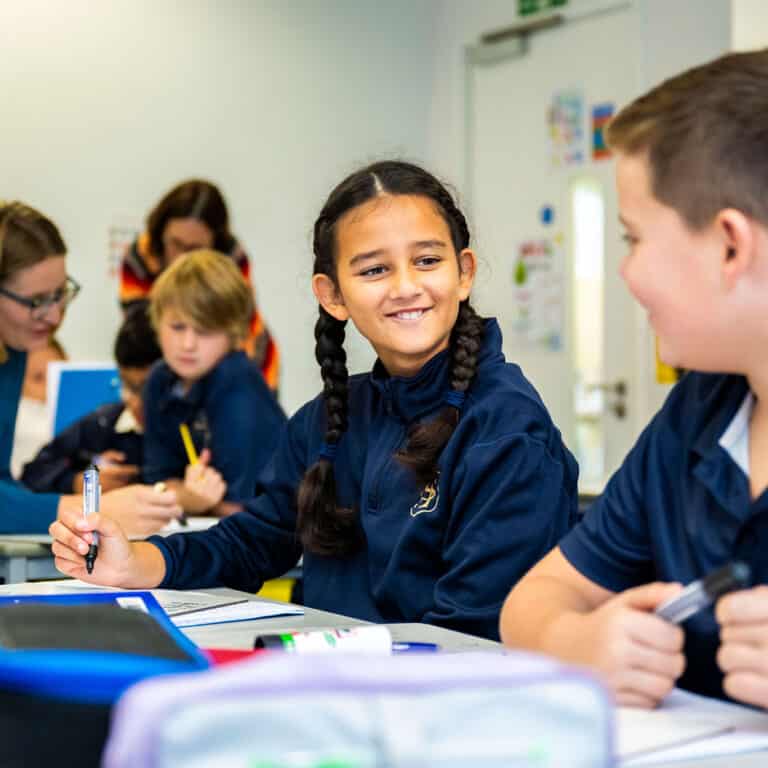Sherborne House School is committed to providing outstanding pastoral care to all of its pupils. We are dedicated to providing a nurturing and supportive environment in which every child feels valued and cared for within every aspect of their school life. Our children’s physical welfare, confidence, self-belief and well-being is at the heart of our school.
Through our school ethos, our children recognise that they are part of a school community in which they learn equality, diversity, democracy and respect for all. As part of this community, the children share a sense of belonging as they are placed within ‘house teams’ from Pre-Reception to Year 6 and opportunities are given for the children to collaborate and celebrate their successes as part of a team. These house teams – Beeches, Oaks and Pines – are central to life at Sherborne House School. Throughout their school experiences, the children earn house points – small wooden tokens – which they place in their house bowl for all to see. The sense of pride and excitement is a sheer delight to see on their faces as they are eager to know which house team has won the most house points each week!
Our Golden Thread at Sherborne House School encourages the development of self-esteem and confidence in all of our pupils and provides positive experiences for overcoming adversity and building resilience. Our child-led curriculum means that every child is treated as an individual with our children developing an excitement and enjoyment for learning. Recognising that mental health plays an intrinsic part in a child’s holistic development, the children are provided with a curriculum to promote positive mental health and relationships.
Every child has a form tutor who will observe the physical and emotional welfare of the children. The form tutor develops a positive, caring relationship with the children and is able to offer comforting and ‘safe’ conversations to support pastoral care. However, we have pride in the fact that all staff at Sherborne House School know our children well and offer an open door policy to the children to support their pastoral care.
In each form, as appropriate to the age of the children, the Zones of Regulation are used to discuss emotions and strategies to support self-regulation. This supports our children to recognise their emotions and the emotions of others, sensory needs and thinking patterns. It also helps children to learn how to recognise their triggers, learn to read facial expressions, manage their emotions and become more attuned to how their actions may affect others.
We passionately believe that excellent pastoral care is built upon strong relationships with our children, parents and staff. We work hard to ensure that a well-developed system for pastoral concerns is in place and our pastoral leads work closely with all staff to ensure that any concerns are handled sensitively and in a timely, professional and confidential manner. We respect that every child is individually unique and therefore the pastoral care must reflect the child’s individual needs. Our SENCo and Pastoral Lead is able to offer advice to parents or guardians. In addition for the children, we are able to provide outdoor learning opportunities for children through our Forest School, ELSA (Emotional Literacy Support) individual support and have a well-being garden for the children to use. We also have peer support through our Well-being Ambassadors.



